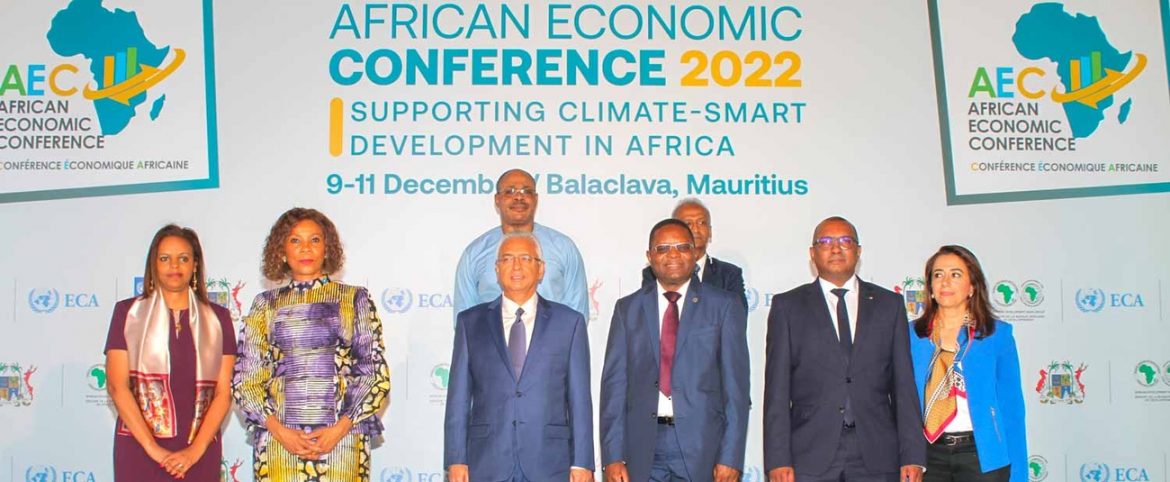The 2022 edition of the African Economic Conference (AEC) kick-started on Friday in the island nation of Mauritius with strong calls for Africa to adopt smart technologies to tackle what speakers described as ‘the looming climate change threat’ to the continent.
In his opening remarks at the conference, the Prime Minister of Mauritius, Pravind Kumar Jugnauth said “Supporting climate-smart development in Africa is extremely pertinent. Climate change is a looming threat to Africa. The continent is the most vulnerable region to climate disasters.”
Jugnauth emphasized how the spike in oil prices brought on by Russia’s conflict in Ukraine should increase Africa’s need to move away from fossil fuels and achieve self-sufficiency in the generation of power.
The conference with the theme “supporting climate-smart development in Africa,” brings together various stakeholders including policymakers, climate experts, the private sector, researchers, and youths, to discuss and draft an action plan to support the low-carbon and climate-resilient development of Africa.
Read also: Climate Change Plans: US panel accuses “Big Oil” of spreading false information
In a speech read by Acting Chief Economist and Vice-President of the African Development Bank, Prof. Kevin Urama, the Bank’s President, Dr Akinwumi Adesina underscored the urgency of Africa adapting to climate change.
“Africa is suffering from the devastating effects of climate change, from droughts, floods, irregular rainfall, locusts, and armyworms. Supporting climate-smart, environmentally friendly development is one step in the right direction,” he said.
Ahunna Eziakonwa, Assistant Administrator and Director of the Regional Bureau for Africa at the United Nations Development Program, stressed in her remarks that Africa must choose a climate-smart path to achieving the Sustainable Development Goals.
“In 2022, we have seen a climate emergency hitting with increasing intensity. At the same time, climate-change-induced drought is precipitating hunger and even famine in regions such as the Horn of Africa. Protecting the planet cannot be an option, it is an urgent priority,” she added.
Speaking about the recently concluded United Nations Climate Change Conference, COP 27, she said: “While COP27 in Egypt did not achieve the drastic reduction in emissions that the world needs, it did see the establishment of funding arrangements for loss and damage.”
Dr Hanan Morsy, deputy executive secretary of the United Nations Economic Commission for Africa, noted that the conference’s theme this year offers the chance to analyze and summarize the talks at COP 27 and offer suggestions for promoting climate-smart development in Africa.
In her words, “Africa needs to close huge development gaps by investing substantially in key sectors such as energy, agriculture, transport, water, and cities, among others. These sectors are all very vulnerable to the adverse impacts of climate change.”
Story was adapted from AfDB.
